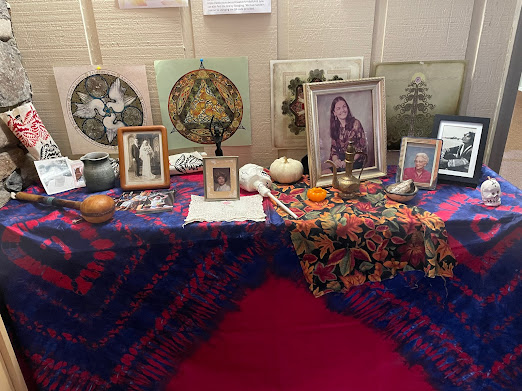Living Planet Report 2022 details the issues with climate change and biodiversity.
Published October 13, 2022 11:14AM ED Treehugger Newsletter (quoted in its entirety here.)
“Today we face the double, interlinked emergencies of human-induced climate change and the loss of biodiversity, threatening the well-being of current and future generations.”
So begins the executive summary of the Living Planet Report 2022. Released every two years by the World Wildlife Fund (WWF), the study examines global biodiversity and the health of the planet. The latest report reveals an average 69% drop in world vertebrate species in less than 50 years.
The report considers nearly 32,000 populations of 5,230 species from the Living Planet Index (LPI). Provided by the Zoological Society of London, the index tracks trends in species abundance around the world. This year’s report includes data on more than 838 new species and 11,000 new populations since the last report was released in 2020.
In addition to putting numbers to species declines, the report shows the threats behind those drops, how these statistics relate to planetary health, and offers possible solutions.
The report details the connection between climate change and biodiversity loss and focuses on some species that have plummeted, as well as some that have rebounded.
For example:
There was an estimated 80% plunge in the population of eastern lowland gorillas in the Kahuzi-Biega National Park in the Democratic Republic of Congo between 1994 and 2019. The main threat to the species, also known as Grauer’s gorilla, is hunting.
Hunting was one of the main causes of the 64% decline in Australian sea lion pups in South and Western Australia between 1977 and 2019. The pups are also often caught in fishing gear and die from diseases.
But there have been some promising discoveries with species that have been recovering.
The population of loggerhead turtle nests grew by 500% on the coast of Chrysochou Bay in Cyprus from 1999 to 2015. Credit conservation efforts that include relocating nests and using cages to protect others from predators.
Conservation measures have also helped mountain gorillas. In the Virunga Mountains along the northern border of Rwanda, the Democratic Republic of Congo, and Uganda, populations of mountain gorillas increased to 604 animals, up from 480 gorillas in 2010.
Rebecca Shaw, WWF's chief scientist, spoke to Treehugger about the highlights and lowlight of the report.
Treehugger: What are your overall impressions of the Living Planet Report findings?
Rebecca Shaw: The Living Planet Report 2022 presents a dire picture of the health of our planet. It reveals that monitored populations of mammals, fish, birds, reptiles, and amphibians have decreased by 69% on average since 1970. This figure is based on measurements of over 32,000 populations of vertebrates from terrestrial, marine, and freshwater habitats. Scientists now believe we are in the midst of the sixth mass extinction; a period of time when a high percentage of Earth’s biodiversity dies out. This rapid rate of biodiversity loss is closely linked with climate change; both problems exacerbate one another and they must be addressed together.
What are the most worrisome statistics?
Latin America, including the Amazon rainforest, has a staggering rate of biodiversity loss: a 94% decrease in average vertebrate population sizes. This region is suffering from an unprecedented amount of deforestation and forest degradation, which, if not halted, may trigger an irreversible climate tipping point. The Amazon has historically served as a massive carbon sink, but burning and logging have the potential to turn the rainforest into a carbon source, accelerating climate change.
But do you also focus on the bright spots like loggerhead turtles and mountain gorillas?
Absolutely! The recovery of specific populations is a testament to the power of conservation work. We must celebrate the wins and learn how to replicate these results at scale. On the coast of Cyprus, targeted conservation efforts increased the number of loggerhead turtle nests by 500% between 1999 and 2015. Workers relocated nests away from tourist areas and even used cages to protect the eggs from foxes. The mountain gorilla’s habitat extends into Rwanda, the Democratic Republic of Congo, and Uganda. Collaborative conservation efforts in these countries have increased the population size by over 125% within 10 years.
What are the main causes of these population declines?
Land-use change is the greatest current threat to nature, but a failure to reduce greenhouse gas emissions could make climate change the primary cause of biodiversity loss in the future. Land-use change is the process of converting wilderness ecosystems into residential, commercial, or agricultural land. This process destroys habitats and causes climate change, both of which threaten wildlife. Around 30% of all land that sustains biodiversity has been converted for food production, and agriculture is also responsible for 80% of deforestation and 70% of freshwater use globally.
Why is this report important?
This report is an indicator of overall ecosystem health from the lens of biodiversity, the web of life that supplies the clean air, water, and soil we all rely on. These findings are a red flag that warns of a larger systems failure on the horizon. Even one species population decline can affect other species, eventually impacting an ecosystem’s ability to function. While some fluctuation in population sizes is natural, the current trends are severe enough to threaten many life-sustaining systems. Humans depend on a stable climate, predictable precipitation patterns, and productive farmland and fisheries to thrive. Our planet needs us to take action now so that it can continue to support future generations.
What action do you hope it will spur?
We must rapidly transform our food systems and cut greenhouse gas emissions to limit global warming to 1.5 degrees Celsius. Protecting, conserving, and restoring ecosystems is one effective way to do this, but we also need to invest in renewable energy sources, like wind and solar power. Individuals can shift corporate behavior through their purchasing decisions and their civic participation, demanding accountability from politicians and business leaders.
















